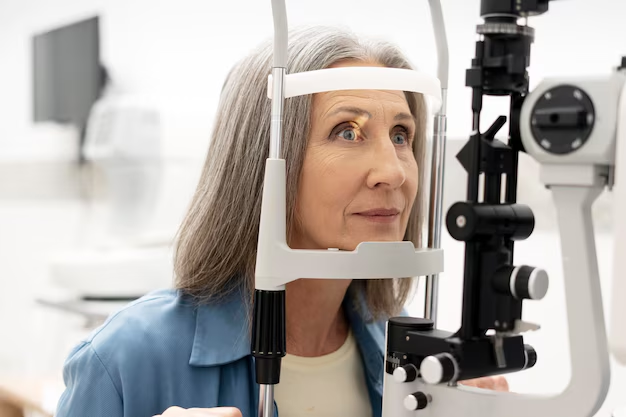Your Guide to Can Cataracts Come Back After Surgery
What You Get:
Free Guide
Free, helpful information about Cataract FAQ and related Can Cataracts Come Back After Surgery topics.
Helpful Information
Get clear and easy-to-understand details about Can Cataracts Come Back After Surgery topics and resources.
Personalized Offers
Answer a few optional questions to receive offers or information related to Cataract FAQ. The survey is optional and not required to access your free guide.
Do Cataracts Return After Surgery? Unraveling the Myths and Facts
Cataracts, clouding the natural lens of the eye, affect vision significantly over time. As one of the leading causes of vision impairment worldwide, cataract surgery has become a common procedure for restoring sight. But a pressing question remains: Can cataracts come back after surgery? In this guide, we will explore this topic comprehensively, discussing the nature of cataracts, the surgical procedure used to treat them, and what patients can expect post-surgery.
Understanding Cataracts and Surgery
What Are Cataracts?
Cataracts occur when proteins in the eye's lens break down, causing cloudy vision. Symptoms may include:
- Blurred or dim vision
- Difficulty seeing at night
- Halos around lights
- Fading or yellowing of colors
The Cataract Surgery Process
Cataract surgery involves removing the clouded lens and replacing it with an artificial one, called an intraocular lens (IOL). This outpatient procedure is typically quick and painless, leading to significant improvements in vision for most patients.
How Often Does Cataract Surgery Happen?
Cataract surgery is one of the most common surgical procedures globally, reflecting its high success rate and the substantial visual improvement it offers patients.
Can Cataracts Reappear After Surgery?
Here’s the reassuring news: a cataract itself cannot return after it has been removed. Once the natural lens is out, it cannot become cloudy again. However, some patients may experience what is known as a "secondary cataract" or "posterior capsule opacification (PCO)."
Understanding Posterior Capsule Opacification
What Is PCO?: PCO occurs when the back of the lens capsule, which holds the IOL in place, becomes cloudy. This clouding may affect vision, mimicking cataract-like symptoms.
How Common Is PCO?: PCO is relatively common post-surgery and can develop weeks, months, or even years after the procedure.
Treating Posterior Capsule Opacification
PCO is resolved with a simple laser treatment called YAG laser capsulotomy. It is a quick, painless procedure, often carried out in the doctor's office, that clears up the cloudiness without needing additional surgery.
Ensuring Clear Vision Post-Surgery
Monitoring and Follow-Up Care
Regular follow-up appointments are crucial to ensure the health of your eyes after cataract surgery. These appointments allow eye care professionals to monitor for any changes in vision and detect PCO early:
- Eye Check-ups: Scheduled immediately after surgery, followed by regular intervals.
- Self-Monitoring: Patients should remain vigilant for vision changes and seek advice if they notice signs of PCO.
Maintaining Eye Health
Practicing good eye health post-surgery can significantly impact the longevity of your vision. Here are some practical tips for maintaining eye health:
- Protect Your Eyes: Wear sunglasses to shield your eyes from harmful UV rays.
- Balanced Diet: Consume a diet rich in antioxidants, as nutrients like Vitamin C and E are crucial for maintaining eye health.
- Regular Eye Exams: Do not skip regular eye exams, as they are pivotal for early detection of any eye conditions.
Addressing Common Concerns
How to Differentiate Between PCO and Other Vision Issues
Vision changes can be alarming, but not all are related to PCO. Here's how to spot the difference:
- Symptoms of PCO: Blurring, halos, and glare similar to original cataract symptoms.
- Other Conditions: If vision issues persist, other conditions like retinal detachment or glaucoma need consideration.
If uncertain, consulting an eye care professional for an accurate diagnosis is advisable.
FAQs About PCO
Will I Need Another Surgery for PCO? Thankfully, treating PCO does not require returning to the operating room. YAG laser capsulotomy is an outpatient procedure that resolves PCO efficiently.
Is the YAG Procedure Safe? The YAG laser process is widely considered safe and is performed routinely with minimal risks.
The Road to Optimal Vision
Key Takeaways
To help consolidate your understanding and expectations post-cataract surgery, here’s a handy summary:
- Cataracts Don’t Return: Once removed, cataracts cannot grow back.
- PCO Is Treatable: If secondary cataracts develop, they are easily treated.
- Regular Check-ups: Routine eye exams are critical to catch any changes early.
- Healthy Habits: Continue practicing good eye health by protecting your eyes and maintaining a nutrient-rich diet.
Encouragement and Final Thoughts
Experiencing enhanced vision following cataract surgery can be life-changing. Even if PCO develops, it's important to remember that solutions are readily available. By staying proactive about your eye health, attending regular check-ups, and adopting protective habits, you’re investing in your long-term visual clarity. If concerns arise, remember to reach out to your eye care provider, empowering you to face the future with clearer vision.
What You Get:
Free Cataract FAQ Guide
Free, helpful information about Can Cataracts Come Back After Surgery and related resources.

Helpful Information
Get clear, easy-to-understand details about Can Cataracts Come Back After Surgery topics.

Optional Personalized Offers
Answer a few optional questions to see offers or information related to Cataract FAQ. Participation is not required to get your free guide.


